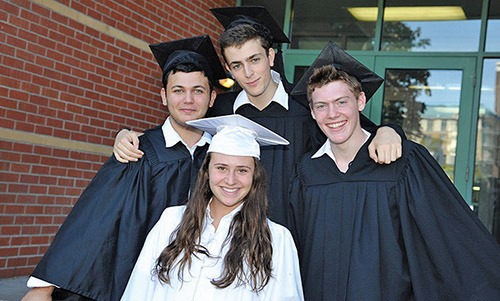

All day schools have as their goal to produce proud literate Zionist Jews, and good American citizens. How one defines these categories and measures these aspirations is not universally clear. Does Jewish literacy include classic Hebrew literature and Hebrew fluency beyond TaNaKh and rabbinic texts? Does anyone still teach civics today? How intensive is their study of Zionism and Jewish History? In reality every day school has a very similar curriculum and they each omit the same subjects.
In the 1970’s two visionary educators, Dr. Alvin Schiff a”h and Dr. Joseph Preil a”h, designed a uniform high school entrance exam for New York-New Jersey elementary day schools. It was administered by the Board of Jewish Education of New York, now called the Jewish Education Project. In fact the exam is still colloquially known as the BJE. Their goal was not simply to test mastery of a given range of subjects, but to actually use the exam to create a standard curriculum and syllabus in the day schools to measure how well the students were learning and how well the schools were teaching. The test is still being used but a standard curriculum has not been adopted. The unfortunate by-product of the BJE exam is that some schools spend too much time prepping for the test instead of just teaching.
In order to be competitive today’s day schools offer many time consuming bells and whistles. When parents ask why there isn’t time for more Hebrew literature, Jewish history, geography, etc. administrators point to an already long school day. A thorough analysis by a parent-school committee of subjects taught, and prioritizing them would be enlightening and instructive.
Given the pressures faced by administrators to excel in so many areas this is not an easy task but one that needs to be undertaken. What exactly should our children really know after 8th grade?
High school presents other discrete challenges. Aside from limudei kodesh, students must acquire proficiency in science, math, English and social studies in order to gain entrance to the college of their choice. Extra-curricular activities, sports, and clubs are important adjuncts to the high school experience. We have written before about the need for classes in hashkafa. In college and in life there are many questions that will come up for which our students may not be prepared to answer, neither for themselves nor when challenged by others.
Some schools do provide Q&A sessions on a regular basis. One of the most creative Jewish educators in the field today, Rabbi Dr. Nachum, Amsel, (Director of Education of The Destiny Foundation) has designed a course entitled “Know What to Answer” with Jewish sources on 160 topics. The subjects covered are real questions asked by high school students as well as challenges that Jewish kids face on college campuses. Some of the topics are: Does God Have a Plan for Us? For the World?; Is Being Good the Most Important Jewish Thing?; Homosexuality in Orthodox Judaism; The Jewish Attitude to Capital Punishment; How Much is God Really Involved with the World?; The Jewish Attitude to Cloning and Its Ethical Dilemmas; Does God Exist?; How do We Really Know? CAN We Know?; God’s Providence: How Much God & How Much Us?; Jewish View Of Tattoos And It’s Relationship to Jewish Burial; The Dilemma of Paying Ransom to Free a Hostage; Jewish Concepts of Kaddish and Its Importance; Self Esteem In Judaism; The Value of Jerusalem to the Jew; Bad Things Happen to Good People: Some Jewish Approaches; Using Data for Nazis Experiments to Further Science—Right or Wrong?; Revenge in Judaism: Is It Ever Justified?; Should We Give Honor To a Leader Who Sinned?; Tolerance and Intolerance in Judaism; The Ethics of Torture in Judaism; Gun Control—the Jewish View; The Difference Between Men and Women; Antisemitism; Being Jewish and Being Different; Business Ethics; Christianity and Judaism; Civil Disobedience; Cults and Judaism;Drugs and Alcohol; Ecology and the Environment; Euthanasia and Abortion; God: Is He Really Watching Us?; Holocaust: Why Remember?; Honesty and Cheating; Human Dignity; Individuality and Conformity; Land of Israel and Its Ties to Judaism; Jew Living in a Non-Jewish Society; Less Observant Jews; Life After Death; Messiah; Miracles; Modesty-Tzniut: More Than Dress; Peer Pressure; Science & Judaism: Conflict or Harmony?; Sex; Shabbat; Triage: Priorities in Allocating Resources; Truth and Lying; Zero Population Growth.
Truth be told, these topics could also form the basis of many adult education programs, but they are geared to high school students. Prioritizing what we teach is a challenge given the wide range of what is covered in high school, but being a literate Jew means more than reading Rashi or knowing some pages of Talmud.
By Wallace Greene
Rabbi Dr. Wallace Greene has had a distinguished career as a Jewish educator, administrator and day school consultant.










